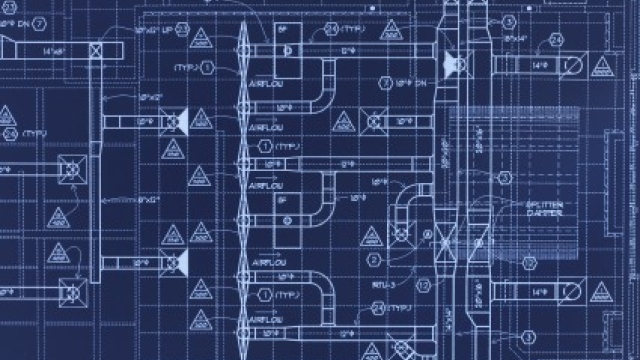
Welcome to our guide on unlocking the secrets of HVAC efficiency! Your HVAC system plays a vital role in your home’s comfort and energy usage. Understanding how to optimize its performance can not only save you money on utility bills but also contribute to a more sustainable lifestyle. In this guide, we will explore key strategies that homeowners can implement to improve the efficiency of their HVAC systems, ensuring a comfortable indoor environment all year round. Let’s dive in and discover how to maximize the potential of your HVAC system.
1. Understanding HVAC Basics
HVAC systems are essential components of modern homes, providing heating, ventilation, and air conditioning to ensure comfort throughout the year. Understanding how your HVAC system functions is crucial for optimizing its efficiency and performance. The main components of an HVAC system include the furnace or heat pump for heating, the air conditioner for cooling, ductwork for airflow, and thermostat for temperature control.
Proper maintenance is key to maximizing the lifespan and efficiency of your HVAC system. Regularly changing air filters, inspecting for leaks or blockages in the ductwork, and scheduling annual professional maintenance can help prevent costly repairs and ensure consistent comfort in your home. Additionally, keeping the area around your outdoor unit clear of debris and vegetation can improve airflow and overall system performance.
Efficient HVAC operation also relies on proper thermostat settings. Adjusting the temperature based on your schedule and preferences, using programmable thermostats, and avoiding drastic temperature fluctuations can help reduce energy consumption and lower utility bills. Understanding the basics of how your HVAC system works and implementing simple maintenance practices can go a long way in ensuring optimal performance and comfort in your home.
Tips for Improving HVAC Efficiency
HVAC service softwareRegular Maintenance: Keeping your HVAC system well-maintained is crucial for optimal efficiency. Make sure to schedule annual inspections and clean or replace filters as recommended by the manufacturer. This simple task can prevent dirt and debris from clogging the system, allowing it to operate smoothly and efficiently.
Programmable Thermostats: Installing a programmable thermostat can make a significant difference in your HVAC system’s efficiency. Set the temperature higher when you’re not at home or lower when you’re asleep to avoid excessive energy consumption. This way, you can ensure that your HVAC system is only running when necessary, saving on energy costs in the long run.
Proper Insulation: Ensuring that your home is properly insulated can help your HVAC system work more efficiently. Good insulation helps maintain a consistent temperature indoors, reducing the workload on your HVAC system. Check for drafts, seal any leaks, and consider adding insulation to your walls, attic, and windows to improve overall energy efficiency.
Maintenance Guidelines for HVAC Systems
Regular maintenance is crucial for ensuring your HVAC system operates efficiently year-round. First, replace air filters every 1-3 months to prevent dust and debris buildup. Secondly, schedule professional HVAC inspections at least once a year to identify and address any potential issues early on. Lastly, keep the area around your outdoor unit clear of debris to maintain proper airflow.
